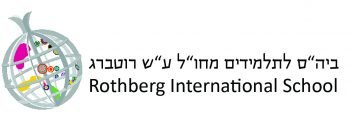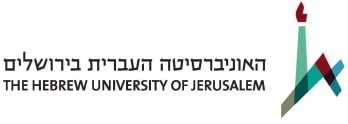Why Biblical Hebrew?
- Study religious texts in the holy city of Jerusalem
- Learn from leading scholars at Israel’s top university
- Engage with a complete range of Biblical texts, from Biblical prosaic text to late Biblical texts
As a student of Biblical Hebrew at the Hebrew University’s Rothberg International School (RIS), you’ll have the opportunity to study the full range of Biblical texts, from Biblical prosaic text to late Biblical texts, including Biblical poetry, prophetic report, selected Psalms, epigraphic material, the Dead Sea Scrolls, Ben Sira, selections from the Mishna, and more.
You can take Biblical Hebrew within the framework of one of our master’s degree programs or as part of our flexible, non-degree Graduate Study Abroad Program.
Our Biblical Hebrew courses are offered at the intermediate and advanced levels. Each level extends over one academic year (October-June). If you are interested in attending, you will need to take a Biblical Hebrew placement exam to assess your level. If you are at the beginner’s level, you must take the Biblical Hebrew summer course in preparation for the intermediate level. See the Biblical Hebrew Summer Language Program webpage for details.
You can only take this course during the summer. For details, see the Biblical Hebrew Summer Language Program web page.
Credit & Hours: 112 academic hours total; 8 credits (4 in autumn, 4 in spring); twice a week for two weekly hours
Note: Students enrolled in a full M.A. program at the Hebrew University may use only half of the credits earned towards their M.A. degree.
Instructor: Dr. Tania Notarius
Curriculum:
At the intermediate level, you’ll focus on syntax, vocabulary, and poetic language. The course begins by reviewing verbal morphology (verbal conjugations and inflection and object pronominal suffixes). It continues with the syntactic and semantic study of the system of verbal tenses in Classical Biblical Hebrew. You’ll discuss topics such as different approaches to understanding the verbal system, discourse modes in Biblical prosaic text and their influence on verbal tenses, word order in verbal clauses, and the semantic interpretation of verbal tenses in context. You’ll further study these topics through intensive prose reading.
You’ll also examine Biblical poetry: the language of Biblical poetry, parallelism, and the pragmatics of the poetic language. Nominal morphology (nominal derivational patterns and inflectional forms) and nominal syntactic phenomena (nominal clause, construct state, accusative types, apposition, or hendiadys) are also a focus.
Additional syntactic features studied will include relative and other types of subordinate clauses, discourse markers, adverbs, and conjunctions. We’ll also investigate cantillation marks and their relevance for syntax.
The Biblical readings include selections from the First Temple period: classical narrative, procedural discourse, prophetic report and prophetic poetic speech, and selected Psalms (about 550 Biblical verses altogether). The class tests include quizzes on the vocabulary of the Biblical passages and assignments on the grammar topics.
Credit & Hours: 56 academic hours; 4 credits; once a week for two weekly hours
Note: Students enrolled in a full M.A. program at the Hebrew University may use all of the credits earned towards their M.A. degree.
Instructor: Dr. Dan Barak
Course name: The History of the Hebrew Language during the First and Second Temple Periods
Curriculum:
The advanced course in Biblical Hebrew surveys the development of the Hebrew language from its earliest attestations through the end of the Tannaitic period. You’ll study the development of the language, paying attention to salient linguistic phenomena of the different periods, through reading:
- Archaic Biblical poems such as Genesis 49, Exodus 15, Numbers 23-24, Deuteronomy 32-33, Judges 5
- Classical Biblical texts such as the Pentateuch and Former Prophets
- Late Biblical texts such as Ezra, Nehemiah, First and Second Chronicles
- Epigraphic material such as the entire corpus of Hebrew inscriptions from both the First and Second Temple periods, e.g., Gezer, Samaria, Arad, Siloam, Lachish, Bar Kochva letters
- The Dead Sea Scrolls such as 1QIsa, 1QS
- Ben Sira
- The Mishna
Apply
Biblical Hebrew courses are taken within the framework of one of our master’s degree programs or our Graduate Study Abroad Program. For more information about eligibility, admissions, costs and more, please refer to one of those webpages.
Contact
Email the Division of Graduate Studies
Call us: +972 2 588 3482
Fast Facts
Course:
Biblical Hebrew Program
Language of Instruction:
English and Hebrew
Study Tracks:
Beginner, Intermediate, Advanced
Length:
One semester to one year, depending on level
Start Dates:
Beginner: Summer
Intermediate: Autumn
Advanced: Autumn or summer
Check the academic calendar
Eligibility:
Bachelor’s degree; proficiency in English
Beginner: Familiarity with the Hebrew alphabet
Intermediate: One year Biblical Hebrew or completion of beginner summer program
Advanced: Two years Biblical Hebrew
Application Deadline:
Autumn Semester or Full Year: May 15
Spring or Summer Semester: December 30
Late applications reviewed on a case-by-case basis
Cost:
For academic year, see costs for study abroad; for summer, see costs for summer program

